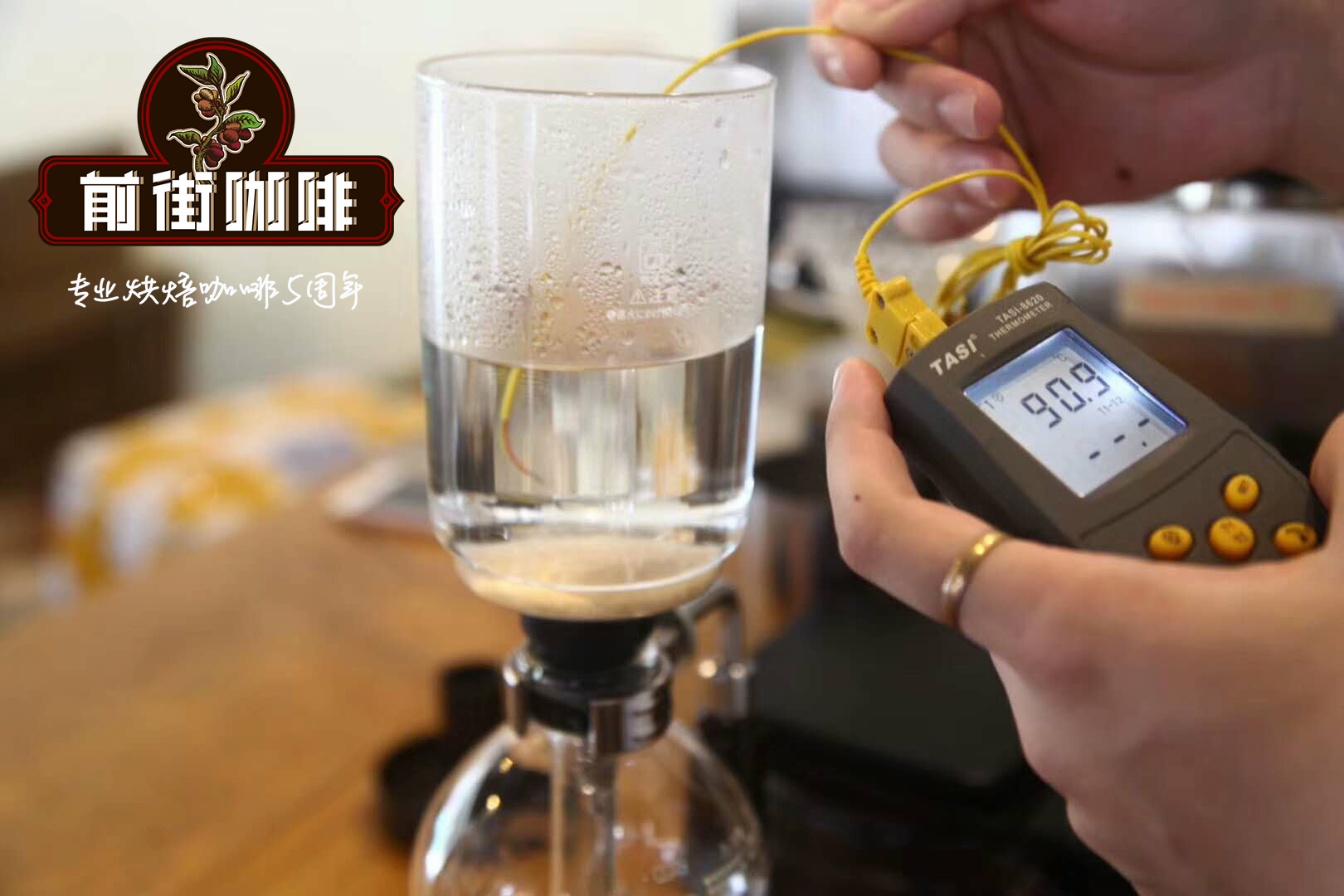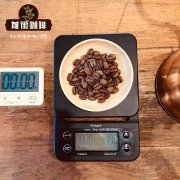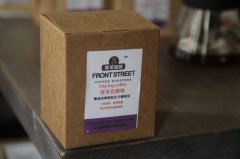Salvadoran coffee AIDA bourbon sun-dried boutique coffee beans recommended _ El Salvador pearl

Professional coffee knowledge exchange more coffee bean information please follow the coffee workshop (Wechat official account cafe_style)
Aida, the sixth generation descendant of Salvador bourbon coffee, founded Aida Battle Selection (ABS) in 2009.
Aida spent her childhood and youth in the United States, but returned to El Salvador at the age of 28. At first, she was not a coffee producer, but since returning to her hometown, she has been thinking about how to help local coffee farmers cope with the depressed coffee market at that time. Soon, because of her relevant experience in the food industry, she returned to the United States to absorb many ideas of sustainable food development, and immediately adopted various methods similar to growing organic fruits to deal with coffee. For example, coffee is picked only when the fruit is fully ripe and carefully processed.
After years of hard work, ABS beans are highly recognized by many cafes and bakers who have won international rankings, and many baristas who participate in international events also use ABS beans.
Aida Batlle of El Salvador has chosen Kenya's GrainPro package for this coffee, which comes from Paradise Manor on the slope of the Ilamatepec volcano in El Salvador's Santa Ana province. This coffee carries on the original promise of Aida Batlle and demonstrates the processing art of Beneficio Las Tres Puertas coffee. Dry pool fermentation and soaking after fermentation is also known as "Kenyan treatment". The peeled coffee is fermented in a dry pool for 48 hours and washed every 12 hours, so that the pulp is completely removed. After soaking the parchment coffee in clear water for 24 hours, the parchment coffee was placed on an elevated drying bed for natural drying.
Aida Batlle can be said to be the forerunner of El Salvador's boutique coffee and a legend in the boutique coffee industry.
She speaks standard English, and between 1980 and 1992, in order to avoid the Salvadoran civil war, she lived with her family in Miami, where she grew up, didn't finish college, and then moved to Nashville with her husband to run restaurants and takeout. After the failure of her marriage, she was 28 years old and felt there was no reason to stay in the United States. She returned to El Salvador in November 2002 and took over her family's farm. The following year (2003), the Cup of Excellence was held for the first time in El Salvador. She took the beans and won the first prize. The Solberg & Hansen Cafe in Oslo, Norway, marked her batch for $14.06 a pound, when Salvadoran coffee was less than a dollar a pound!
Aida
She was a novice and knew very little about coffee. She happened to encounter a wave of boutique coffee sweeping the world. Only after she won the Outstanding Cup Award did she realize her coffee potential and began to seriously study cup testing and farm practice. Her family Batlle owns several estates, of which the Finca Kilimanjaro estate, which won the first prize of the extraordinary Cup, is grown organically on the steep slopes of Mount Santa Ana. In addition to Kilimanjaro, her estate includes Finca Los Alpes, Finca Mauritania, and Finca Tanzania. Los Alpes won the 16th in the 2003 extraordinary Cup.
The fate of coffee in El Salvador can be said to be played by fate. El Salvador has been famous for its bourbon native species since the 19th century. In the 1980s, coffee agriculture was abandoned and dilapidated due to the height of the civil war, while other countries were fighting coffee infectious diseases by introducing disease-resistant and high-yielding beans on a large scale, such as Catimors or varieties of Katimo, but the flavor of these new beans was not as good as that of traditional beans. As a result of the civil war, El Salvador missed the innovation of beans, but retained a lot of ancient bourbon, and 50-or 80-year-old coffee trees can even be found on many farms. Because of the lack of care for many years, many of these coffee trees are not only susceptible to germs, but also lack nutrition and mediocre flavor, but if they continue to be taken care of, these bourbon coffee has a very rich and elegant flavor and great potential.
Aida's great-great-grandfather, the man who introduced bourbon coffee to El Salvador, her Batre family has grown coffee in western El Salvador for five generations, but in the past, after the cherries were harvested on the farm, they were sent to a large processing plant, where they were mixed with cherries from other different farms and marked as Salvadoran coffee, regardless of specific producing areas or batches, and the treatment was traditionally washed. To her father's generation, she still runs the coffee farm in this way. Aida has no baggage, with completely different ideas from the tradition, insisted on separate batches, and brought the treatment methods of other countries to El Salvador, carrying out many experimental projects, including the Kenyan treatment method Kenya process, the Ethiopian treatment method Ethiopia process, and even developed the "Sumalvador" treatment method. Coffee from El Salvador is treated with the traditional Sumatran wet stripping method (Giling Basah wet hulled). But she is not a theorist sitting in the lab. Aida is famous for doing it herself, and she will be seen squatting down with harvester workers to sift through cherries during harvest, leaving only ripe fruit. She personally sat in the washing plant, managing each treatment step, cup testing each batch, and understanding the subtle differences in flavor.
Aida Aida Batlle, the pearl of El Salvador
Aida is very popular because it is rare to understand the flavor needs of bean bakers and can cooperate with new practices in farm planting and processing plants. Buying her coffee is full of heavyweight boutique coffee shops, such as Stumptown coffee, Blue Bottle Coffee, Counterculture coffee, Intelligentsia, PT's coffee, as well as big stores from Britain and Europe, making her the face of a new generation of coffee farmers in El Salvador. She has been interviewed by the New Yorker and time magazine, and she, along with Rachel Peterson of Emerald Manor, was elected as a member of the Board of Directors of the 2014-2015 SCAA. And her insistence on organic farming law has also received a great response, and this year she became the winner of the Good Award in the United States. In the past two years, due to the rampant leaf rust, the farm has been affected. Kilimanjaro, which turned out to be organically certified, had to use drugs to prevent the spread of germs, so he had to take off the certification.
Because her coffee is so popular that her farm is in short supply, the "Aida Select" project (ABS: Aida Batlle Sellection) was born four years ago. She worked with the historic J. Hill processing plant in Santa Ana to help nearby farmers improve the quality of their coffee, from planting, harvesting and processing, to supervising the production process to meet her strict standards, before wearing the Aida selected "ABS" logo. J. Hill is one of the oldest treatment plants in El Salvador. Founded by James Hill from England in 1896, it is famous for its vast sun field and huge treatment capacity. It has the first wastewater treatment plant in El Salvador and even a very advanced breeding garden. It has grown coffee seedlings for the farm, with 500000 seedlings and a first-class cup testing and training center. Aida has worked closely with J. Hill since 2003. With all kinds of innovative ways in her mind, after the launch of the ABS project, J. Hill is almost the headquarters of the project.
With the ABS mark, there is a guarantee of Aida. This year's World hand Championship champion Stefanos Domatiotis of Greece is a user of ABS, who won fifth place in the 2012 World Coffee Masters (WBC) two years ago through ABS's five different treatments of beans.
END
Important Notice :
前街咖啡 FrontStreet Coffee has moved to new addredd:
FrontStreet Coffee Address: 315,Donghua East Road,GuangZhou
Tel:020 38364473
- Prev

How about Brazilian Santos Coffee? Santos Coffee Story the characteristics of Brazilian yellow bourbon coffee beans
For more information on coffee beans, please follow the coffee workshop (Wechat official account cafe_style) Arabica coffee in Brazil is called Bourbon, after it appeared on the island of Bourbon (now known as Reunion). Santos Coffee is a smaller and curly bean derived from the Yemeni mocha. Use only the top coffee harvested in the first two times
- Next

Brazil Yellow Bourbon Coffee Dou se Tao Manor Sertãozinhojieshao_ Brazil Yellow Bourbon Cafe
Professional coffee knowledge exchange more coffee bean information please follow the coffee workshop (Wechat official account cafe_style) Brazil Manor Sertaozinho Yellow Bourbon Coffee Natural Sun 16 + is from Manor Sertozinho, located in Minas Gerais, the state of Minas Tiris, Brazil. The manor has 300 hectares of protected forest and towering old growing trees called Jequitib
Related
- Detailed explanation of Jadeite planting Land in Panamanian Jadeite Manor introduction to the grading system of Jadeite competitive bidding, Red bid, Green bid and Rose Summer
- Story of Coffee planting in Brenka region of Costa Rica Stonehenge Manor anaerobic heavy honey treatment of flavor mouth
- What's on the barrel of Blue Mountain Coffee beans?
- Can American coffee also pull flowers? How to use hot American style to pull out a good-looking pattern?
- Can you make a cold extract with coffee beans? What is the right proportion for cold-extracted coffee formula?
- Indonesian PWN Gold Mandrine Coffee Origin Features Flavor How to Chong? Mandolin coffee is American.
- A brief introduction to the flavor characteristics of Brazilian yellow bourbon coffee beans
- What is the effect of different water quality on the flavor of cold-extracted coffee? What kind of water is best for brewing coffee?
- Why do you think of Rose Summer whenever you mention Panamanian coffee?
- Introduction to the characteristics of authentic blue mountain coffee bean producing areas? What is the CIB Coffee Authority in Jamaica?

